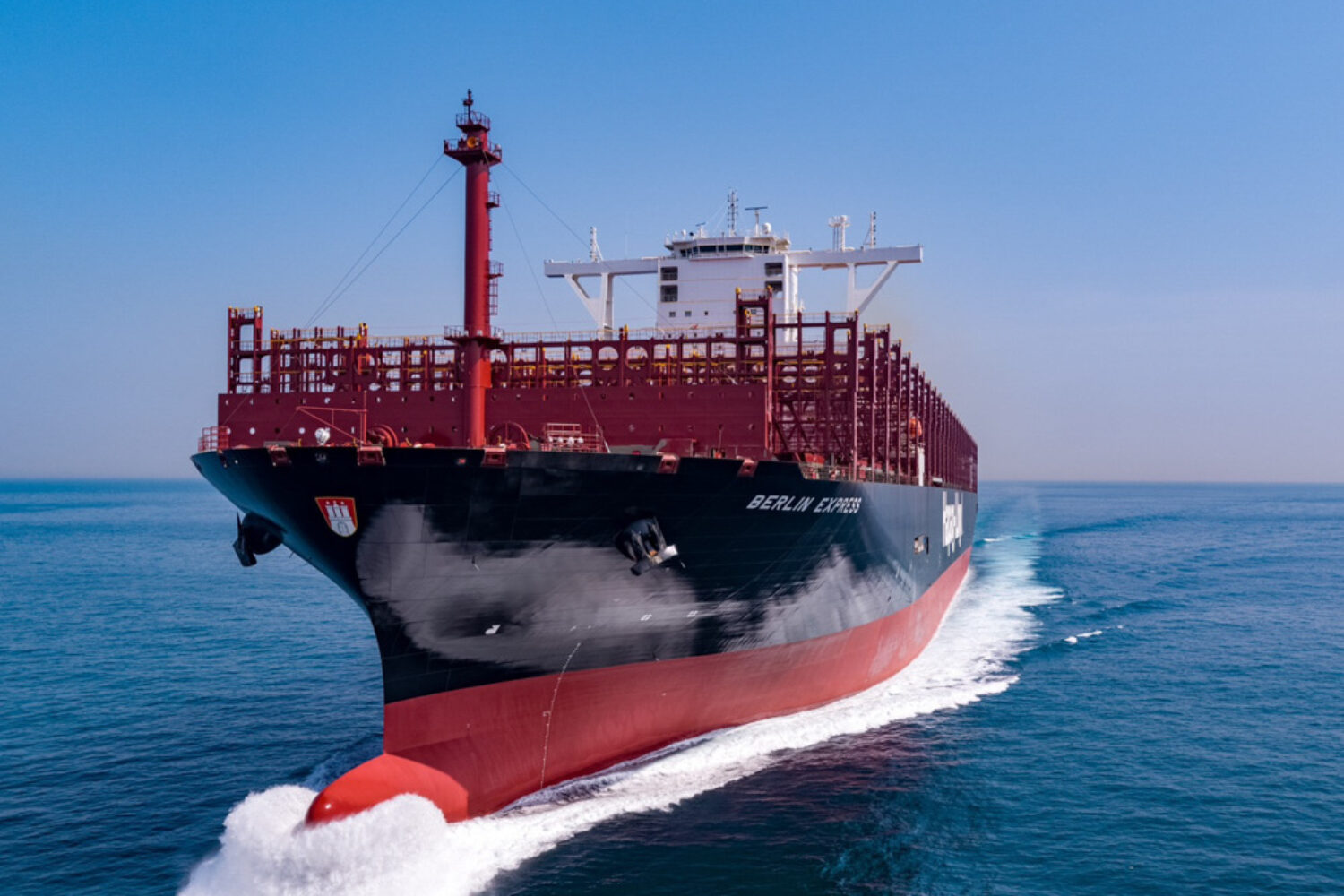Hapag-Lloyd has signed two orders for a total of 24 container ships with two Chinese shipyards.
The possible orders have been reported for some time, but there has been no official confirmation from the listed Hamburg-based liner shipping company – until now.
According to a statement, 12 ships with a capacity of 16,800 TEU will be built by the Yangzijiang Shipbuilding Group. They are to be used “for capacity expansions in existing services”. A further 12 ships with a capacity of 9,200 TEU have been ordered from the New Times Shipbuilding Company and will replace older units in the Hapag-Lloyd fleet “which are approaching the end of their service life this decade”.
Hapag-Lloyd orders “ammonia-ready” vessels
All newbuildings will be equipped with low-emission high-pressure dual-fuel liquid gas engines, which are said to be “extremely fuel-efficient”. In addition, these ships can run on biomethane, which should reduce CO2e emissions by up to 95% compared to conventional propulsion systems. The new ships are also “ammonia-ready”.
According to the information provided, delivery will take place between 2027 and 2029, with an investment volume of “around four billion US dollars”. Long-term financing of three billion US dollars has already been committed, according to Hapag-Lloyd.
“This investment is one of the largest in the company’s recent history and a significant milestone for Hapag-Lloyd and our Strategy 2030 as we continue to grow while modernising and decarbonising our fleet. By operating a more efficient fleet, we are also improving our competitive position and can continue to offer our customers a global, high-quality product thanks to the increase in capacity,” said CEO Rolf Habben Jansen.
In the press release, Hapag-Lloyd “fully” commits to the 1.5-degree target of the Paris Agreement. By 2030, absolute greenhouse gas emissions from fleet operations are to be reduced by around a third compared to 2022. This target is to be achieved by investing in modern, efficient newbuilds, slow steaming, fleet modernization and the use of new drive technologies and alternative fuels.
In view of the recent investment decision to convert five ships to methanol propulsion, which was announced on 16 April this year, this investment is “a further step to prepare Hapag-Lloyd for a future with different fuels and to drive forward the decarbonisation of liner shipping”.













